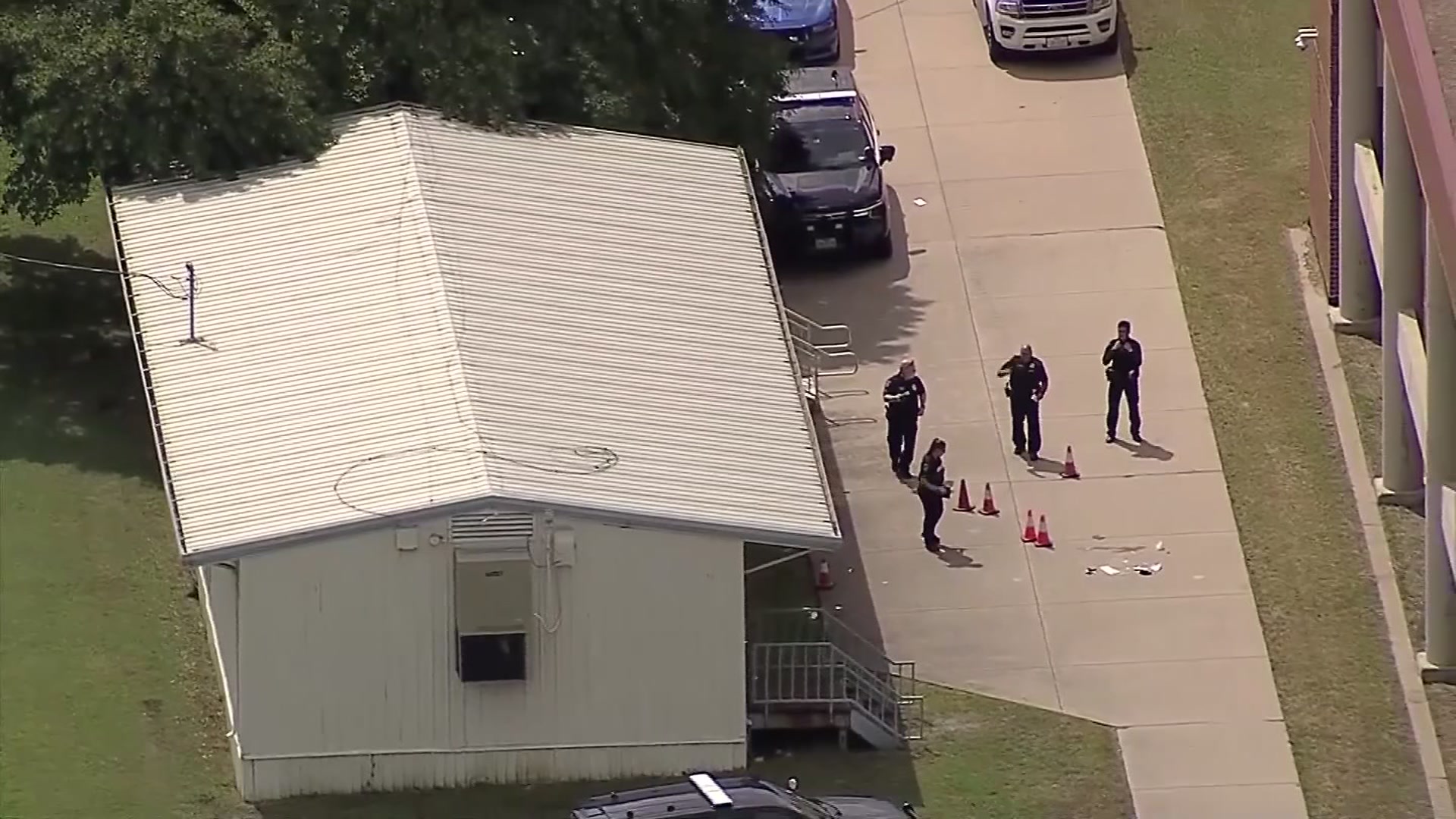The number of COVID-19 hospitalizations in North Texas continues to rise once again.
According to the Dallas-Fort Worth Hospital Council, about 1,233 people are fighting COVID-19 complications as of Monday, July 26. It's a 107 increase from Sunday. A month ago, there were 322 COVID-19 patients in hospitals across DFW.
In a statement, they said this represents 8.66% of bed capacity and 27.28% of adult ICU patients, which means more than a quarter of adult ICU patients have COVID-19, according to the Dallas-Fort Worth Hospital Council.
"First and foremost we want to treat patients and try to get them well, but what we would prefer is to prevent them from having COVID-19, so we're encouraging people to please get vaccinated," said Stephen Love, CEO and president of the DFW Hospital Council. "Most of the people that we're treating in our hospitals have not been vaccinated, and that's very unfortunate."
Get DFW local news, weather forecasts and entertainment stories to your inbox. Sign up for NBC DFW newsletters.
He said he continues to stress how contagious the delta variant is.
"It is going through North Texas at rapid speed, so if you haven't been vaccinated, please give it serious consideration," Love said.
Local
The latest news from around North Texas.
In Dallas at Parkland Hospital Health and Hospital System, Dr. Joseph Chang, the Chief Medical Officer, said on Monday that they're seeing what's happening with their own eyes.
"Oh, it's not good, it's not good," said Chang, who said they're currently treating more than 70 patients actively infected with the virus. A month ago, it was around seven patients.
"So we're definitely increasing at an unacceptable rate and in fact, are rising at a rate that's higher than back in the wintertime," Chang said. "So, this delta variant is definitely no joke."
At one point Parkland had five wards specifically for COVID-19 patients. Currently, it's just one, but that could possibly change based on the current trajectory.
"That is quickly becoming full so a second one is definitely already in the works. We are hoping that we don't have to go past the second one, but as far as the sort of big red box, everyone has heard about the TCU (Tactical Care Unit)," Chang said. "We do not have plans to open that at this point, because that will would require us shutting down surgeries, and of course, surgery is a very important part of the health care of Dallas County."
He echoed Love about the trend they're seeing in the hospital of who is in having to stay for an extended period of time.
“Every single patient admitted in my hospital right now with COVID-19 has not been vaccinated," said Chang, who also said it's not unexpected based on the data.
Doctors and nurses are noticing a younger demographic of patients becoming seriously ill which ranges in ages from 20 to 50, Chang said.
"We almost see none over the age of 65, and why is that? Well, the vaccine rates in our over 65 year-olds are very, very high, so they're not getting sick. All the folks who are not vaccinated are the younger age groups, and they're the ones getting sick and being admitted," Chang said.
As an administrator, he's trying to keep the morale up as the numbers go up.
"I tell them that I'm depending on them again, and I'm sorry that I have to stand in front of them and ask them to do this again because I see in their eyes, this sort of hopelessness and just this disheartening feeling that we did not think we wouldn't be back here again. The other thing I tell them is, please keep all of that compassion, and the care for these patients. I know it's frustrating when you see patient after patient come in who simply chose to not get vaccinated," Chang said.
There are stories from across the country, including in Dallas County, of health care workers hearing regret from patients who have become very sick. Chang said they're seeing it as well.
"Every day our doctors and nurses are reporting that our patients are asking, ‘Can I get the vaccine now? Will it help?’ Well, the answer of course is, ‘No, it is way too late.' Once you get infected, there's not much I can do except help you support your body's immune system, so you can fight the infection as best that you can," Chang said.
He said the good news is that in this current wave, they've had few intubations.
According to the DFW Hospital Council, about one in four adults in the ICU have COVID-19.
"It appears the number of cases are going to increase, and as you know, hospitalizations are a lagging indicator, which means probably 10 to 12 days after those people test positive, they could be hospitalized," said Love.
The DFW Hospital Council said Tarrant County has 458 adult patients in the ICU with COVID-19 as of Monday making it the county with the most hospitalizations in TSA-E.
According to the Dallas-Fort Worth Hospital Council:
- Tarrant County has 458
- Dallas 350
- Collin 172
- Denton 60
- Hunt 33
- Grayson 30
- Rockwall 39
TSA-E, or Trauma Service Area E, is comprised of 19 counties, including Cooke, Collin, Dallas, Denton, Ellis, Erath, Fannin, Grayson, Hood, Hunt, Johnson, Kaufman, Navarro, Palo Pinto, Parker, Rockwall, Somervell, Tarrant, and Wise counties.
Dallas County also averaged 600 to 800 positive COVID-19 cases a day, according to DFW Hospital Council.
Love also said that he's heard from doctors and nurses who said they're frustrated.
"I think from a standpoint of, they're tired, they're fatigued. Many have been at this issue well as you know 17 or 18 months, and I think, in many cases, they don't want to preach to people, they don't want to force people to get vaccinated, but what they want to do is ask people to please consider it," said Love.
"Vaccine, vaccine, vaccine. There's nothing else to say," said Chang.
According to the Centers for Disease Control, while vaccines are not 100% foolproof, they're helping reduce the risk of severe illness and hospitalization.
“I do think the outcome could have been different had he been vaccinated," said the sister of a man who recently passed away.
Last week Monica Black and her family had to prepare for the last thing anyone could have ever imagined, a funeral for her brother.
“Just it seems surreal, it seems like it's a dream, and it's just hard to come to terms with, but, you know, at some point you have to try to accept it. We're doing the best that we can, but it has been very hard and really, very sad for our family," said Black.
She described her brother, 56-year-old Randy McCormick, as someone who loved fishing, rock and roll music, and making people laugh. Black described her brother as someone who worked hard and was a great handyman.
Black said last month he started to feel ill.
"Just like flu-like symptoms and all and then he started having trouble breathing," said Black.
She said he was admitted to a hospital, but started to feel better a couple of days later and actually received a negative COVID-19 test result. He went home, but the next day started to feel worse, trouble breathing and vomiting.
"My sister went to check on him and said, 'I think we need to take you back to the hospital,' and so they actually took him to another hospital where he was there for 22 days, they did put him on a ventilator," explained Black.
She said at one point he was doing better and they took him off the ventilator, but then he started to decline again and even coded several times. He was placed back on a ventilator, he stabilized, but declined again and passed away last Tuesday.
"By the time we got to the hospital, he had already passed away," explained Black.
She said her brother had pre-existing conditions such as diabetes and a heart issue but believes the vaccine could have protected him.
"He was not vaccinated. I'm not exactly sure why he hadn't gotten vaccinated," said Black about her brother.
“Several of us have been vaccinated. My parents have been vaccinated. Incidentally, his father, my stepfather also got COVID. And he has lung cancer and had had the vaccination, but he did not get nearly as sick, he never had to go on a ventilator and he was in the hospital for two weeks and then he's been released to come home," said Black.
“I do hope that more people will see how important it is to receive the vaccination. It really can save your life, and you know, we certainly wish now that he would have had the vaccination so that it could have protected him," said Black.
She said McCormick leaves behind a wife, four children, who are still under the age of 18.



